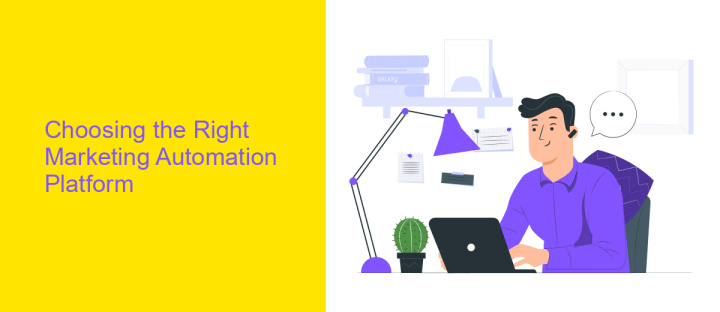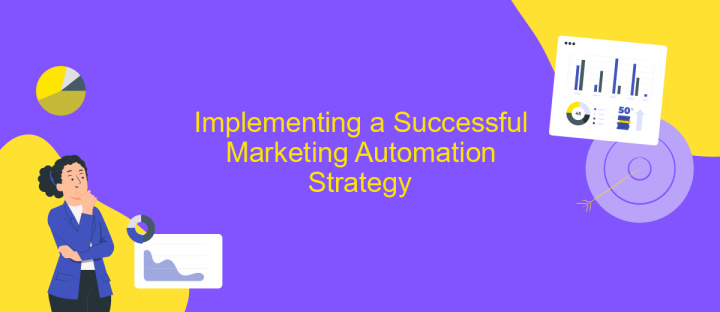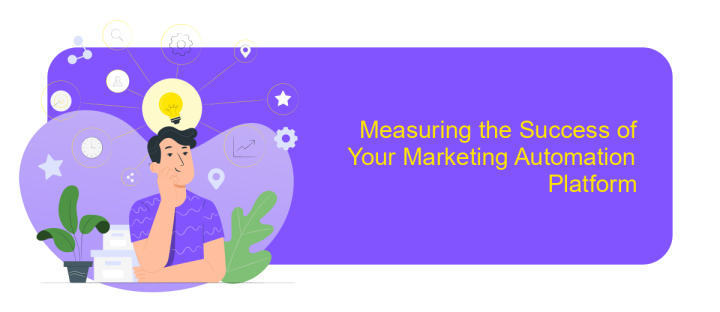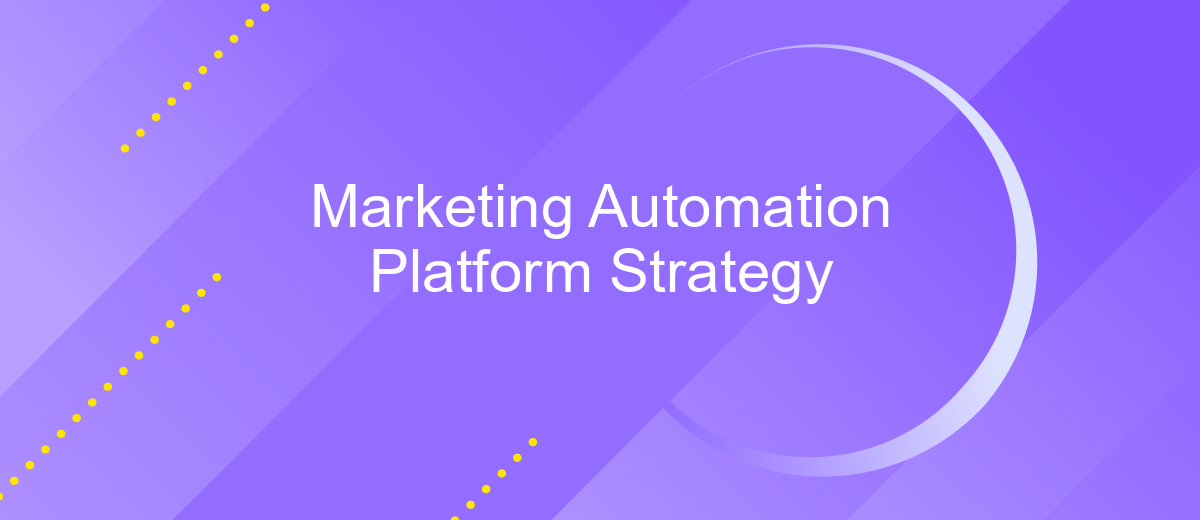Marketing Automation Platform Strategy
In today's fast-paced digital landscape, a robust marketing automation platform strategy is essential for businesses aiming to streamline operations and enhance customer engagement. By leveraging advanced technologies, companies can automate repetitive tasks, personalize customer interactions, and gain valuable insights from data analytics. This article delves into the core elements of an effective marketing automation strategy, offering actionable insights to help businesses maximize their marketing efforts and drive growth.
The Benefits of Marketing Automation Platforms
Marketing automation platforms have revolutionized the way businesses engage with their customers, offering a range of advantages that streamline operations and enhance productivity. By automating repetitive tasks, these platforms free up valuable time for marketing teams to focus on strategic initiatives and creative endeavors.
- Efficiency: Automation reduces manual workload, allowing teams to accomplish more in less time.
- Personalization: Tailored marketing messages can be delivered to specific audience segments, increasing engagement.
- Data-Driven Insights: Access to real-time analytics helps in making informed decisions and optimizing campaigns.
- Scalability: Easily manage and scale marketing efforts as the business grows without proportionally increasing resources.
- Improved ROI: By targeting the right audience with precision, marketing spend is optimized, leading to higher returns.
In a competitive digital landscape, leveraging marketing automation platforms is not just a convenience but a necessity. Businesses that adopt these technologies gain a significant edge, enhancing their ability to connect with customers effectively and efficiently. This strategic advantage is crucial for sustaining growth and staying ahead in the market.
Choosing the Right Marketing Automation Platform

When selecting a marketing automation platform, it's crucial to evaluate your business needs and objectives. Start by identifying the key features that align with your marketing strategy, such as email marketing, lead nurturing, and analytics. Consider the scalability of the platform to ensure it can grow with your business. User-friendliness and customer support are also vital factors, as they can significantly impact your team's efficiency and satisfaction. Additionally, assess the platform's pricing structure to ensure it fits within your budget without compromising on essential features.
Integration capabilities are another critical aspect to consider. A platform that seamlessly integrates with your existing tools can streamline workflows and enhance productivity. For instance, services like ApiX-Drive can facilitate effortless integration between various applications, allowing for smooth data transfer and automation processes. By leveraging such integration services, you can maximize the potential of your marketing automation platform and achieve a more cohesive marketing strategy. Ultimately, the right platform should empower your team to execute campaigns efficiently, track performance, and drive business growth.
Implementing a Successful Marketing Automation Strategy

Implementing a successful marketing automation strategy requires a clear understanding of your business goals and target audience. Begin by defining key objectives that align with your overall marketing plan. This will help you tailor your automation efforts to meet specific needs and ensure that your campaigns are more effective. Additionally, investing time in researching and selecting the right marketing automation platform is crucial to streamline processes and enhance productivity.
- Define clear objectives and align them with business goals.
- Select the right marketing automation platform for your needs.
- Segment your audience to deliver personalized content.
- Create engaging and relevant content for each stage of the customer journey.
- Continuously analyze and optimize your campaigns based on performance data.
By following these steps, businesses can effectively implement a marketing automation strategy that drives engagement and boosts ROI. Remember that successful automation is not just about technology; it’s about delivering the right message to the right audience at the right time. Regularly reviewing and refining your strategy will ensure it remains aligned with evolving market trends and customer preferences.
Measuring the Success of Your Marketing Automation Platform

To truly harness the potential of your marketing automation platform, it's crucial to measure its success effectively. This involves setting clear objectives and key performance indicators (KPIs) that align with your overall marketing goals. By doing so, you can gain insights into how well the platform is performing and identify areas for improvement.
Begin by analyzing the data generated by the platform. Look at metrics such as open rates, click-through rates, and conversion rates to assess engagement levels. Additionally, consider the platform's ability to streamline processes and reduce manual efforts, which can lead to cost savings and increased efficiency.
- Track lead generation and nurturing effectiveness.
- Monitor campaign performance and ROI.
- Evaluate customer engagement and retention rates.
- Assess integration with other marketing tools and systems.
Regularly reviewing these metrics will help you make informed decisions and optimize your marketing strategies. Remember, the ultimate goal is to enhance customer experience and drive business growth. By continuously measuring and refining your approach, you can ensure that your marketing automation platform remains a valuable asset to your organization.
Future Trends in Marketing Automation
The future of marketing automation is poised to be shaped by advancements in artificial intelligence and machine learning. As these technologies evolve, they will enable more sophisticated data analysis and personalization, allowing marketers to create highly targeted campaigns. Predictive analytics will play a pivotal role, offering insights into consumer behavior and preferences, thus enhancing customer engagement and conversion rates. Additionally, the integration of AI-driven chatbots and virtual assistants will streamline customer interactions, providing real-time support and personalized recommendations.
Another significant trend is the increasing importance of seamless integration across various marketing platforms. Services like ApiX-Drive are becoming essential as they facilitate the automation of data transfer between applications, ensuring a cohesive marketing strategy. This integration capability allows marketers to efficiently manage multiple channels, enhancing workflow and reducing manual tasks. As privacy regulations become stricter, marketing automation platforms will also need to prioritize data security and compliance, ensuring consumer trust while delivering personalized experiences. These trends highlight a future where marketing automation is more intelligent, interconnected, and secure.
FAQ
What is a Marketing Automation Platform (MAP) and why is it important for businesses?
How can a business determine which MAP is suitable for its needs?
How does a Marketing Automation Platform integrate with existing systems?
What are the key features to look for in a Marketing Automation Platform?
How can a business measure the success of its marketing automation efforts?
Time is the most valuable resource for business today. Almost half of it is wasted on routine tasks. Your employees are constantly forced to perform monotonous tasks that are difficult to classify as important and specialized. You can leave everything as it is by hiring additional employees, or you can automate most of the business processes using the ApiX-Drive online connector to get rid of unnecessary time and money expenses once and for all. The choice is yours!

